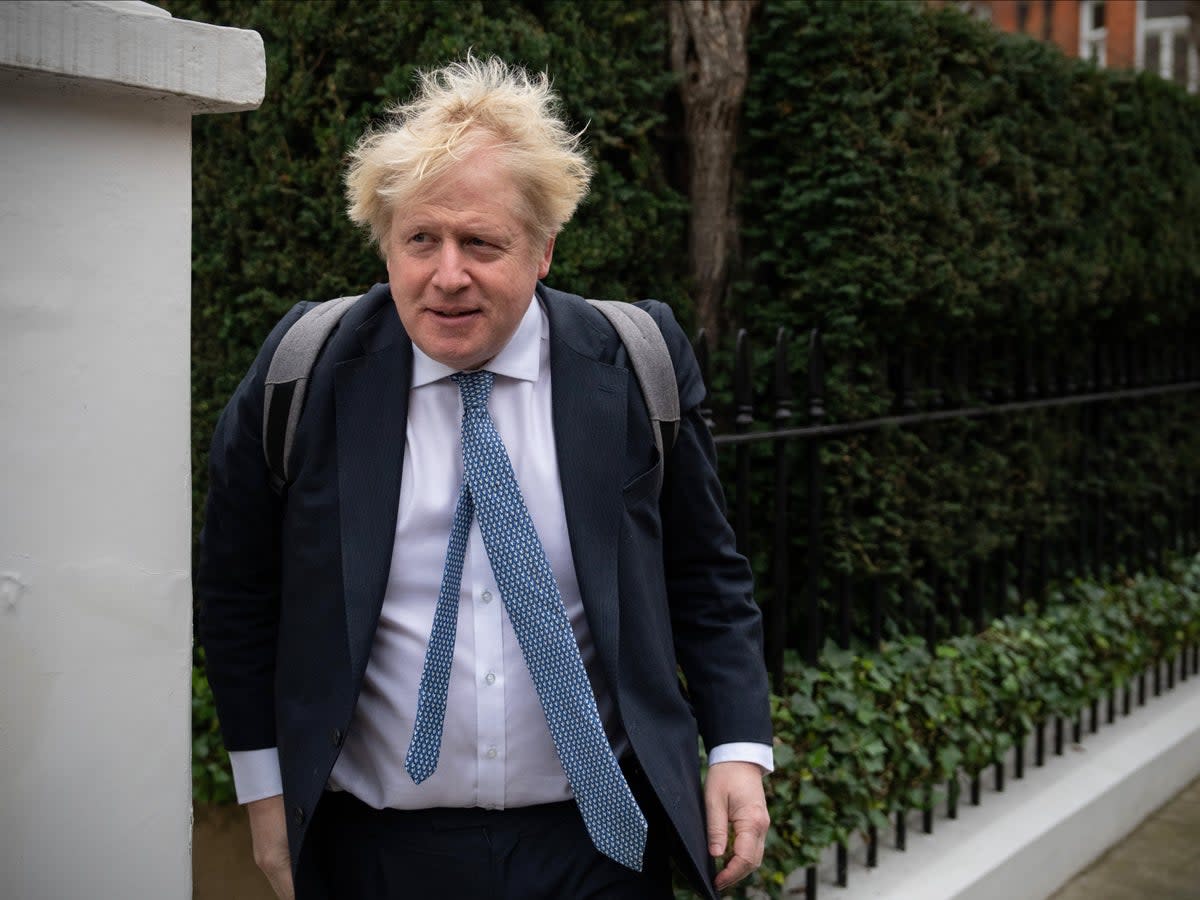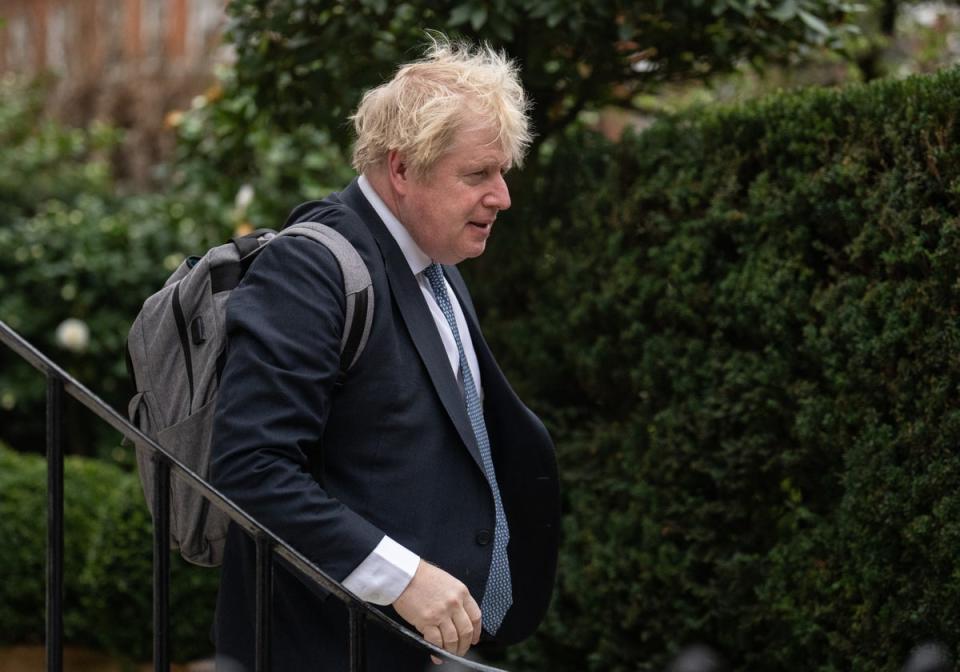Everything you need to know about the Partygate inquiry into Boris Johnson

Boris Johnson is being investigated over whether he misled parliament by repeatedly denying lockdown rules were broken in Downing Street.
The investigation into the former prime minister was launched by the privileges committee 11 months ago and earlier this month it published its initial findings, saying the Commons may have been misled multiple times.
On Monday, Mr Johnson is set to submit a 50-page defence of his behaviour to the committee, before he faces MPs in a televised hearing on Wednesday.
Here is everything you need to know about the investigation:
Why was the inquiry called?
The final weeks of 2021 were dominated by reports of alleged rule-breaking by officials in government buildings while lockdown rules were in place.
It was revealed by ITV News, for instance, that on 19 June 2020, some 30 people gathered in the Cabinet Room at No 10 to present Mr Johnson with a birthday cake, at a time when most indoor gatherings were banned.
The then-PM repeatedly insisted no rules were broken but he, as well as his wife Carrie Johnson and then-chancellor Rishi Sunak, received police fines for the event.
In total, police issued 126 fines after investigating multiple events and senior civil servant Sue Gray also released her own damning report into the Partygate scandal.
Following the police and Ms Gray’s findings, MPs questioned whether Mr Johnson had misled the commons over what he knew and voted in favour of the privileges committee carrying out an inquiry.

What did Boris Johnson tell MPs?
Johnson was quizzed about Partygate on a number of occasions in parliament.
On 1 December 2021, Labour leader Sir Keir Starmer asked Mr Johnson if there had been a Christmas party in Downing Street in 2020, as per reports by the Mirror.
During a session of Prime Minister’s Questions, Mr Starmer asked: “As millions of people were locked down last year, was a Christmas party thrown in Downing Street for dozens of people on 18 December?”
The then-PM replied: “What I can tell the right honourable and learned gentleman is that all guidance was followed completely in Number 10.”
Then, after a video surfaced of government staff joking about a Christmas party, Mr Johnson issued a statement on 8 December 2021 apologising for the “offence” the clip caused.
“I repeat that I have been repeatedly assured since these allegations emerged that there was no party and that no Covid rules were broken - that is what I have been repeatedly assured,” he said.
And when Labour MP Catherine West asked about a date when two parties were reported to have taken place, at least one of which resulted in fines, Mr Johnson also claimed that “guidance was followed”.
“Will the prime minister tell the House whether there was a party in Downing Street on 13 November?” Ms West said.
Mr Johnson replied: “No, but I am sure that whatever happened, the guidance was followed and the rules were followed at all times.”
Who is conducting the inquiry?
The privileges committee, chaired by Labour MP Harriet Harman, is made up of seven MPs - four Conservatives, two from Labour and one from the SNP.
The MPs are voted onto the committee by their colleagues and reflect the political make-up of the House.
In his defence dossier, Mr Johnson will argue that the committee is “biased”, according to The Times.
The Conservative Post website has urged party members to email the four Tory MPs who sit on the committee and urge them to quit the “banana republic” inquiry.
How is the inquiry progressing?
The inquiry published its initial report earlier this month, which included four previously unseen photos of Downing Street gatherings.
The report said: “The evidence strongly suggests that breaches of guidance would have been obvious to Mr Johnson at the time he was at the gatherings.
“There is evidence that those who were advising Mr Johnson about what to say to the press and in the House were themselves struggling to contend that some gatherings were within the rules.”
The committee will now take oral evidence from the key players involved and has confirmed Mr Johnson will appear in front of them from 2pm on 22 March, but it has not yet been announced which other individuals will be questioned.
It has confirmed the hearings will take place in public to make sure the probe is “transparent”, although requests to hear evidence anonymously or in private “will be considered on a case by case basis”.
What could happen when the inquiry is complete?
While the committee can only issue a report for MPs to consider, it can conclude that an individual has been found to have “committed a contempt” in misleading the House and it can recommend sanctions, ranging from an oral or written apology, to a suspension for a specified period or an expulsion from the Commons.
MPs decide whether to accept the findings of the report and to follow through with any sanction.
If MPs agree to a suspension of 10 sitting days or 14 calendar days upwards, it would trigger a recall petition for Mr Johnson, allowing his constituents in Uxbridge and South Ruislip to vote on whether to hold a by-election for his seat.
An exclusive new poll for The Independent has found two in three voters think the ex-Tory leader should stand down as an MP if the parliamentary probe finds that he misled parliament.

 Yahoo News
Yahoo News 
